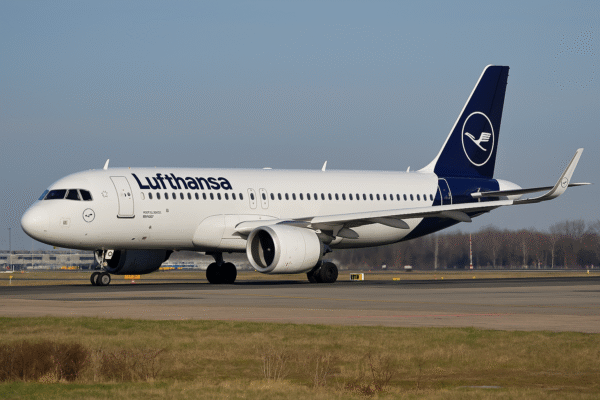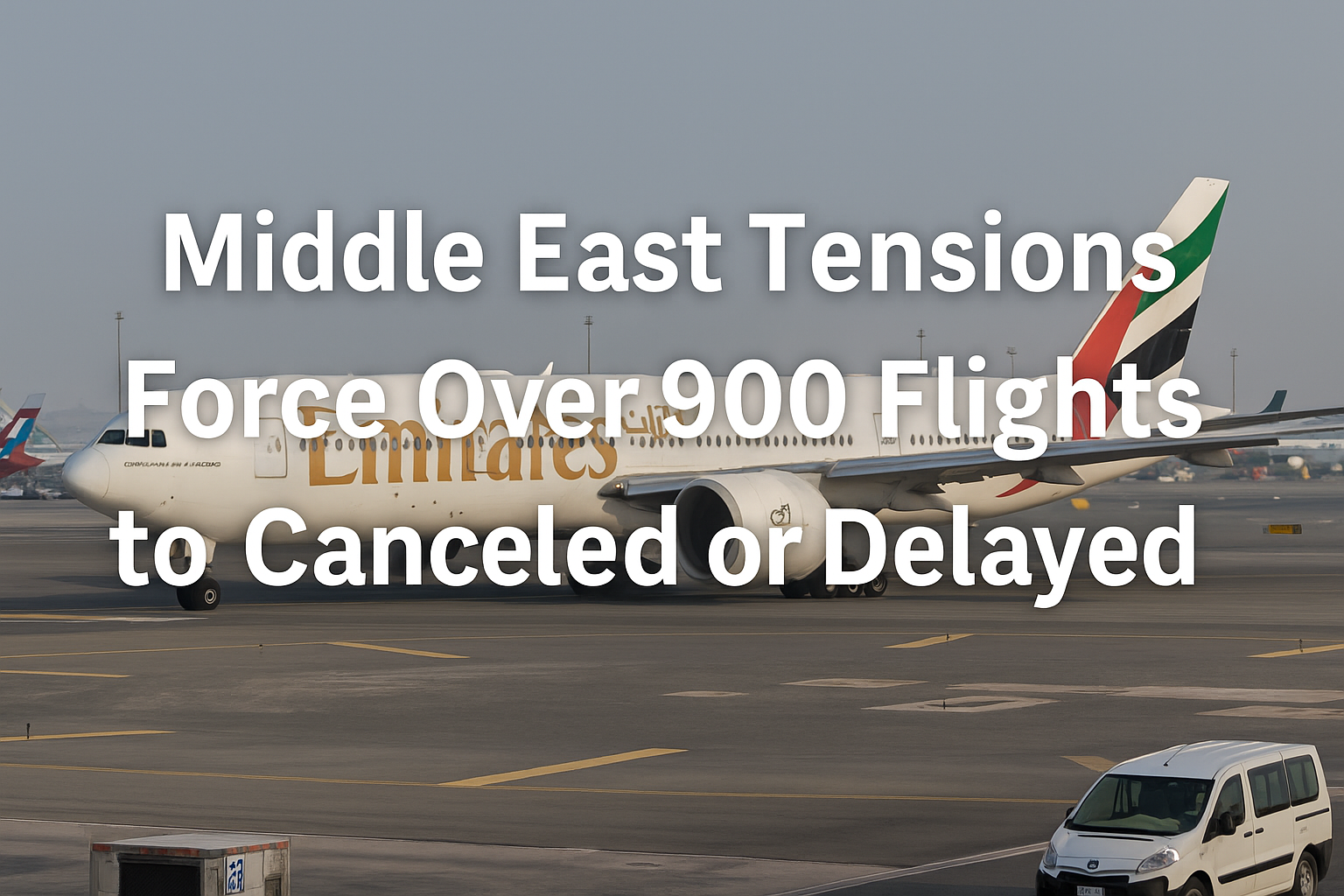A severe wave of air travel disruptions has struck the Middle East, as intensifying geopolitical tensions—particularly following Iran’s retaliatory strike on a U.S. military facility—have triggered the cancellation or delay of over 900 flights across major regional airports. Affected airlines include global carriers such as Emirates, Qatar Airways, Air France, Saudia, Etihad Airways, United Airlines, Japan Airlines, Wizz Air, and others.
This mass disruption has gripped key aviation hubs including Dubai International Airport (DXB), Hamad International Airport in Doha (DOH), King Khalid International Airport in Riyadh (RUH), King Abdulaziz International Airport in Jeddah (JED), Bahrain International Airport (BAH), Abu Dhabi International Airport (AUH), Queen Alia International Airport in Amman (AMM), and Ben Gurion International Airport in Tel Aviv (TLV).
Dubai International Airport (DXB) Hit Hardest
Dubai, the world’s busiest airport by international traffic, reported the highest number of disruptions with 237 delays and 45 flight cancellations in one day. Emirates alone delayed 106 flights, while FlyDubai reported 70 delays and 2 cancellations. Air India, SpiceJet, Wizz Air Malta, Air France, and United Airlines were among other carriers grounding or delaying services.
Doha’s Hamad Airport Also Sees Severe Disruption
Hamad International Airport (DOH) recorded 125 delays and 23 cancellations. Qatar Airways maintained most operations but still delayed over 103 flights. Affected carriers also included Air India, Japan Airlines, Philippine Airlines, and Finnair. The disruptions at this critical East-West air corridor caused ripple effects across continents.
Riyadh and Jeddah: Saudi Hubs Affected
King Khalid International Airport (RUH) in Riyadh reported 42 delays and 11 cancellations, with national carrier Saudia canceling 7 flights. Meanwhile, Jeddah’s airport (JED) experienced 20 cancellations and 33 delays, with Akasa Air canceling all 6 of its services.
Gulf Connectivity Disrupted in Bahrain and Abu Dhabi
Bahrain International Airport (BAH) registered 30 delays and 8 cancellations, mainly affecting Gulf Air. Abu Dhabi (AUH) followed with 112 delays and 6 cancellations, placing strain on Etihad Airways, which delayed 91 flights.
Amman and Tel Aviv: Regional Impact Spreads
Amman’s Queen Alia Airport (AMM) saw 40 delays and 15 cancellations, largely affecting Royal Jordanian. Meanwhile, Israel’s Ben Gurion Airport (TLV) recorded 11 cancellations and 2 delays amid heightened air defense protocols.
Asia Feels the Ripples
Even airports far from the Middle East are affected. Sultan Hasanuddin International Airport (UPG) in Makassar, Indonesia, reported 161 delays and 7 cancellations due to aircraft rotation and maintenance bottlenecks.
Airlines Most Affected
- Qatar Airways: 103+ delays
- Emirates: 106+ delays
- Etihad Airways: 91 delays
- Saudia: 15 cancellations and delays
- Air India: 15+ cancellations
- FlyDubai: 70+ delays
- Gulf Air: 6 cancellations, 25 delays
Root Cause: Iran-U.S. Conflict Escalation
These disruptions follow Iran’s retaliatory strike on a U.S. base, sparking widespread safety concerns over regional airspace. While not officially closed, many airlines are proactively rerouting to avoid possible confrontation zones. The lack of coordination and rapidly shifting advisories have further compounded the operational burden.
Looking Ahead
Airports and airlines across the Gulf are now operating under emergency protocols. With rolling advisories, rerouting decisions, and potential further escalation, passengers are advised to check with their carriers frequently. Meanwhile, tourism in the region is likely to take a substantial hit as the aviation industry braces for prolonged volatility.
This is one of the most far-reaching aviation crises in the Middle East in recent years, with real-time repercussions for global flight schedules. The full impact will depend on how the geopolitical situation unfolds in the days ahead.
For more travel news like this, keep reading Global Travel Wire


















